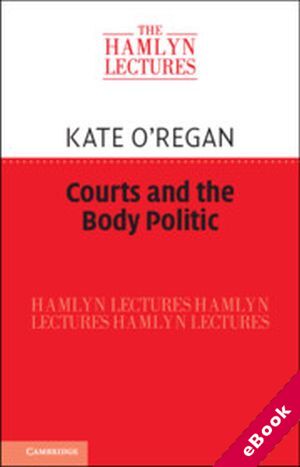
The device(s) you use to access the eBook content must be authorized with an Adobe ID before you download the product otherwise it will fail to register correctly.
For further information see https://www.wildy.com/ebook-formats
Once the order is confirmed an automated e-mail will be sent to you to allow you to download the eBook.
All eBooks are supplied firm sale and cannot be returned. If you believe there is a fault with your eBook then contact us on ebooks@wildy.com and we will help in resolving the issue. This does not affect your statutory rights.
Over the last half century, courts have come to play increasingly important roles in democracies. That role is studied by historians, political scientists, constitutional lawyers and political theorists, but it is also important to all who are concerned about the practice and future of democracy. This book explores why it is that courts are playing this expanded role, as well as exploring two of the most distinctive features of the role of courts: their relationship with the executive arm of government and the role of courts in protecting fundamental rights. The book argues that the role played by courts in modern democracies varies across time and place and depends on a range of factors including constitutional text, constitutional history, and legal and political culture.
This book draws on Justice O'Regan's experience as one of the first judges on South Africa's Constitutional Court, which was established shortly after the transition to democracy in 1994.